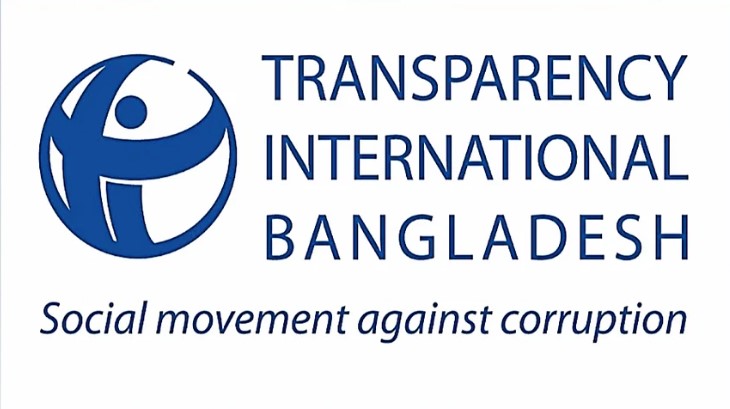TIB wants interim govt to announce time-bound roadmap for reforms

Transparency International Bangladesh (TIB) on Monday recommended that the interim government announce a state reform strategy with specific and time-bound roadmaps.
“We think that still there is time to formulate a strategy with specific roadmaps and move forward following it,” said TIB Executive Director Dr Iftekharuzzaman at a press conference.
The press conference was arranged at its office in the capital’s Dhanmondi area to share TIB observations over the first 100 days of new Bangladesh after the fall of the authoritarian regime.
Dr Iftekharuzzaman said the interim government could formulate a well-thought strategy with time-bound roadmaps at the very beginning of its regime to achieve desired goals of state reform and new political settlement. TIB also earlier urged the government to frame the strategy, he added.
“We think that if it had been done in August, it would have been much more a matter of relief among the people. The people would get a clear idea about their roadmap. But we still don’t see it,” he said.
The TIB executive director said the fall of the authoritarian government is a golden milestone in the history of Bangladesh, which creates a unique opportunity to establish a 'new Bangladesh' through state reforms and a new political and social settlement.
The interim government played a positive role in the transformation process to achieve this goal amid significant challenges and risks, he said.
Focusing on some milestones during the first 100 days of the current interim government, Dr Iftekharuzzaman said the trial process of mass killings carried out by the authoritarian government has already started, Bangladesh signed International Convention for the Protection of All Persons from Enforced Disappearance and formed a commission to ensure justice for the victims of enforced disappearance.
He said the government formed six reform commissions to bring changes to the most important pillars of the state. Later four other reform commissions were formed though they have yet to get institutional shapes, he said.
He said the cyber security act was scrapped, which is very positive. They expected that the victims due to the digital security act and then cyber security act would get compensation and their cases would be withdrawn, he added.
Positive change in financial sector:
The TIB chief said a positive change is noticed in the financial sector during this interim government though it is a matter of long-term to restore stability in this sector. “We think there is a commitment in the leadership level here,” he said.
No desired success in controlling market:
He said there is no denial that the expected achievement was not attained to control the market and prices of commodities in Bangladesh. “There were efforts and are still there (from the part of the government), but it has not been fruitful,” he said.
Reform education and private sectors as well:
The TIB executive director said the private sector should not be kept outside the state reform process. “The reform is indispensable in the private sector,” he said.
Noting that the education sector remains neglected, he said the education should not be kept outside the state reform agenda as some ad-hoc based decisions are not enough to transform the education sector. “We think specific reform initiatives should be taken here,” he added.
Reform of political parties needed too:
Dr Iftekharuzzaman said the issue of reforming political parties is out of the discussion agenda. The institutions which play the most crucial role in establishing democracy in any country are political parties, he said.
The reform reports would not be implemented rather remain just paper documents unless there are no democratic practices and spirits inside the parties, he added.
He expected competent persons with no political affiliation would be recruited to the posts of chairman and commissioners of the Anti-Corruption Commission, as well as chief election commissioner and election commissioners of the Election Commission.
“It is indispensable to ensure the matter that they don’t have any sort of direct and indirect political engagement in their personal life or professional life,” he said.
Backing the government’s step to limit tourism in St Martin’s Island, Dr Iftekharuzzaman said it was done very rationally to protect diversity, corals and resources.
Earlier, TIB senior research fellow Shahzada M Akram presented the report of a study titled ‘New Bangladesh Observations on the First 100 Days after the Fall of the Authoritarian Regime’ in the event.
Akram in his report said mismanagement in prosecuting the violence during the movement—such as the lack of initiative to file specific and evidence-based cases—raises concerns. The extensive filing of hundreds of cases against numerous individuals brings into question the possibility of a proper trial for the main perpetrators, he said.
Adviser of TIB’s Executive Management Prof Dr Sumaiya Khair, TIB Research and Policy Director Muhammad Badiuzzaman and TIB Outreach and Communications Director Muhammad Tauhidul Islam were present.




